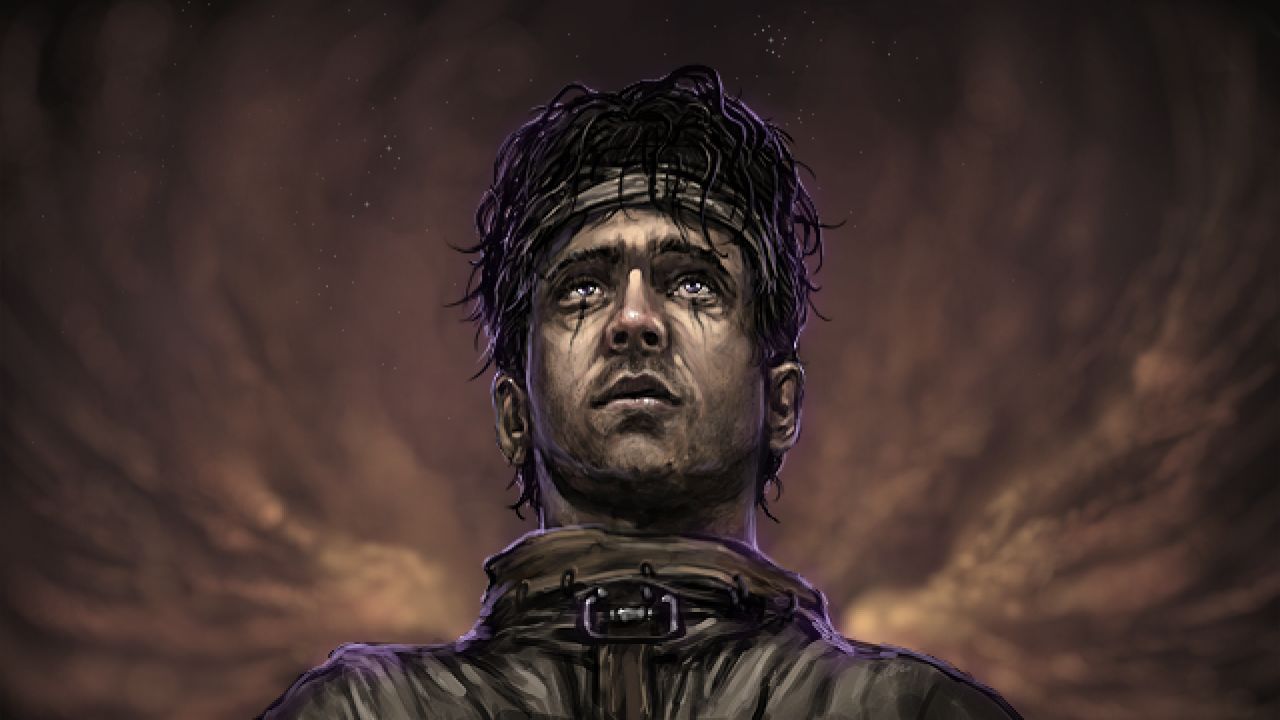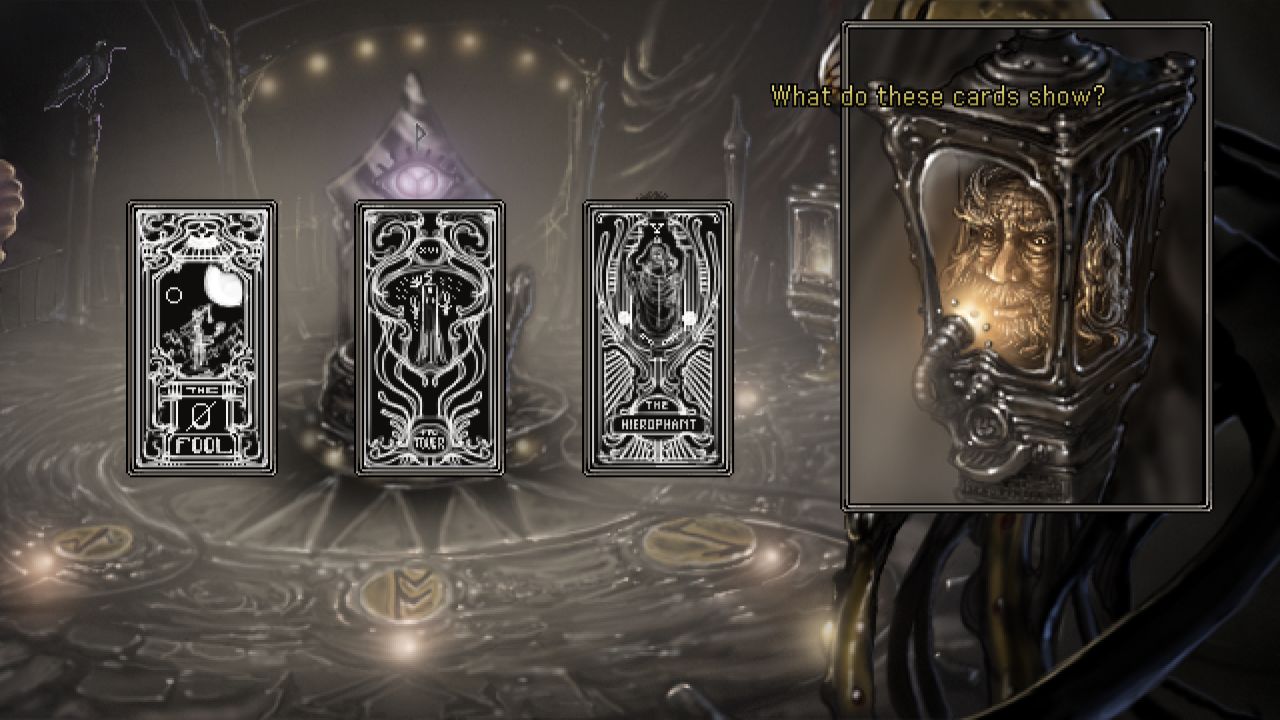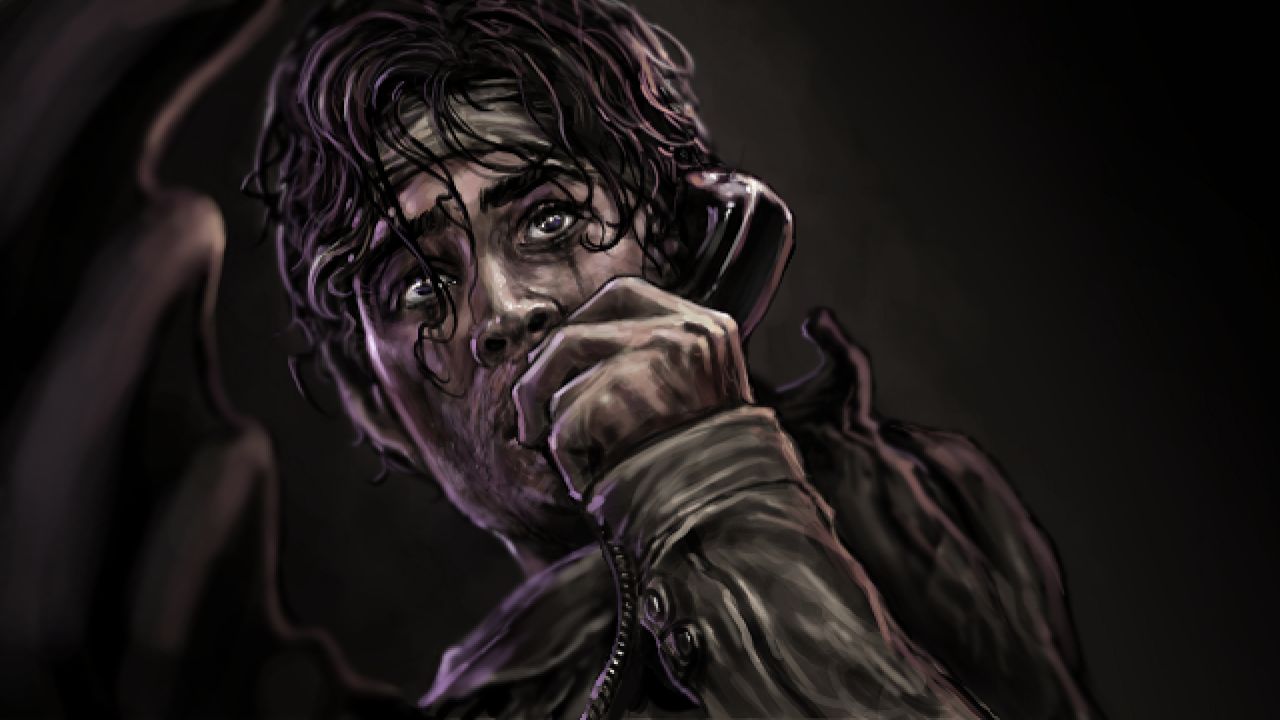- Joined
- Mar 14, 2012
- Messages
- 1,492




Bought. Played. And finished. I've recently begun the second walkthrough with commentaries and annotations.
A few thoughts.
A few thoughts.
I'll be honest, it's very hard to be neutral when a game like this is presented as the result of the author's own attempt (or that of his grandpa) to cope with a similar situation. It's a bit like psychological blackmail. I have this ridiculous feeling, from which it is very hard to abstract, as if by criticizing the game I show disrespect for the author's experience. But I will do my best.
I liked Primordia better overall. And I think there are three main narrative reasons. First, Strangeland is too allegorical for my taste. I prefer stories that work both as allegories and as more classical narratives, i.e. stories in which 'real' events take place, but which, however, at the same time call for some kind of symbolic or psychological interpretation. By 'real' events I mean that they did not happen only in the character's head, that it was not his purely phenomenological introspection of his own grief or some other emotion. Primordia has a layer of 'real' story, Strangeland doesn't. Second, one consequence of allegoricality, in this case, is the actual absence of other characters. As Mark himself says in the commentary, the Stranger is surrounded only by his own thoughts, memories, fears, and other emotions, taking one form or another. For me, it's more of a disadvantage. I'm fine with loneliness in Myst-like games, but I expect interaction with other characters, real characters, in classic style graphic adventures. This, by the way, is one of the reasons I don't really dig The Dig, which is essentially just a Myst-like disguised as a classic Lucasarts adventure game. In Primordia, by comparison, there are a huge number of colorful characters. Third, the narrative is built on a very strong emotion relating to a very difficult experience of loss. But unfortunately (luckily!?), I have no such experience, so it was hard for me to really relate to the narrative. My grandparents died too, but it was much less tragic. I was sad, of course, but I certainly didn't have the problem of getting out of my grief into the real world. I tried to imagine myself in the place of a widower, but although I have a wife whom I love very much, I don't really understand the feelings of a widower. Maybe I lack imagination. But strangely enough, I found it easier to relate to Horatio from Primordia, even though he is a robot.
What I liked about the narrative was the clear sense of meaningfulness. It seems to me that very often psychological horror stories throw a lot of depressing imagery at the viewer/player/reader, which, however, turn out to be quite arbitrary. To be honest, I think that Dark Seed 1 and 2 are just such games. Maybe also Harvester. They can be shocking the first time, but then you start to realize that their scares don't add up to a coherent emotion. In Strangeland, I felt smart. I quickly discerned the token hints of cancer and even guessed that a hypertrophied conscience was on the phone. Clearly, it's not that I'm so smart, it's that these aren't arbitrary images, that there's a plan behind them, that they're well presented. That's cool.
Just a few words about other things. The writing is very good. Clever, but not pretentious. The Scribe, of course, is a bit annoying with his bookish platitudes, but it quickly becomes clear that this is the reaction (at least partially) he is supposed to elicit.
I thought that the game was not difficult in terms of puzzles, and that the puzzles are fair. After solving some of them I also had the feeling (as I did when interpreting the symbols representing cancer) that I am smart. Seems to me to be an accurate marker of good puzzles. And by the way, I liked the phone number puzzle!
The presentation of the game is brilliant. The sound, picture, and voice acting are excellent. Only the animation of the humanoid characters fell a little short of the level of everything else. But this was to be expected, with the increase in resolution requirements to the animation grows incredibly. That's why I still love the classic 320x240.
I liked Primordia better overall. And I think there are three main narrative reasons. First, Strangeland is too allegorical for my taste. I prefer stories that work both as allegories and as more classical narratives, i.e. stories in which 'real' events take place, but which, however, at the same time call for some kind of symbolic or psychological interpretation. By 'real' events I mean that they did not happen only in the character's head, that it was not his purely phenomenological introspection of his own grief or some other emotion. Primordia has a layer of 'real' story, Strangeland doesn't. Second, one consequence of allegoricality, in this case, is the actual absence of other characters. As Mark himself says in the commentary, the Stranger is surrounded only by his own thoughts, memories, fears, and other emotions, taking one form or another. For me, it's more of a disadvantage. I'm fine with loneliness in Myst-like games, but I expect interaction with other characters, real characters, in classic style graphic adventures. This, by the way, is one of the reasons I don't really dig The Dig, which is essentially just a Myst-like disguised as a classic Lucasarts adventure game. In Primordia, by comparison, there are a huge number of colorful characters. Third, the narrative is built on a very strong emotion relating to a very difficult experience of loss. But unfortunately (luckily!?), I have no such experience, so it was hard for me to really relate to the narrative. My grandparents died too, but it was much less tragic. I was sad, of course, but I certainly didn't have the problem of getting out of my grief into the real world. I tried to imagine myself in the place of a widower, but although I have a wife whom I love very much, I don't really understand the feelings of a widower. Maybe I lack imagination. But strangely enough, I found it easier to relate to Horatio from Primordia, even though he is a robot.
What I liked about the narrative was the clear sense of meaningfulness. It seems to me that very often psychological horror stories throw a lot of depressing imagery at the viewer/player/reader, which, however, turn out to be quite arbitrary. To be honest, I think that Dark Seed 1 and 2 are just such games. Maybe also Harvester. They can be shocking the first time, but then you start to realize that their scares don't add up to a coherent emotion. In Strangeland, I felt smart. I quickly discerned the token hints of cancer and even guessed that a hypertrophied conscience was on the phone. Clearly, it's not that I'm so smart, it's that these aren't arbitrary images, that there's a plan behind them, that they're well presented. That's cool.
Just a few words about other things. The writing is very good. Clever, but not pretentious. The Scribe, of course, is a bit annoying with his bookish platitudes, but it quickly becomes clear that this is the reaction (at least partially) he is supposed to elicit.
I thought that the game was not difficult in terms of puzzles, and that the puzzles are fair. After solving some of them I also had the feeling (as I did when interpreting the symbols representing cancer) that I am smart. Seems to me to be an accurate marker of good puzzles. And by the way, I liked the phone number puzzle!
The presentation of the game is brilliant. The sound, picture, and voice acting are excellent. Only the animation of the humanoid characters fell a little short of the level of everything else. But this was to be expected, with the increase in resolution requirements to the animation grows incredibly. That's why I still love the classic 320x240.





























